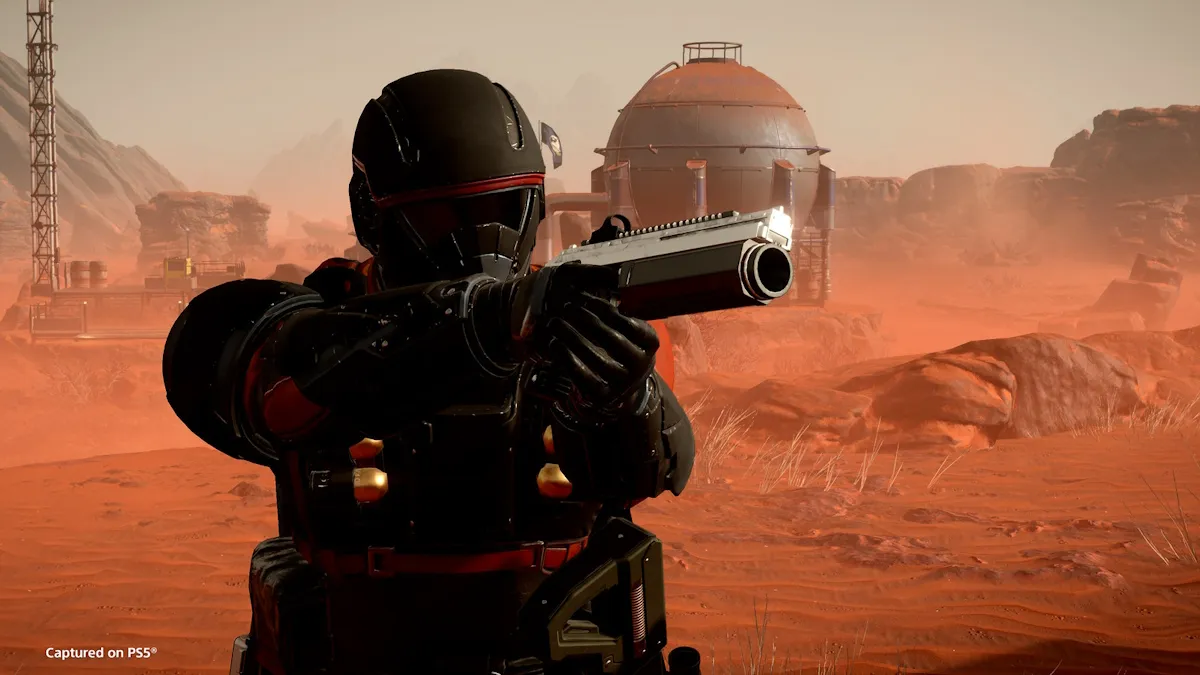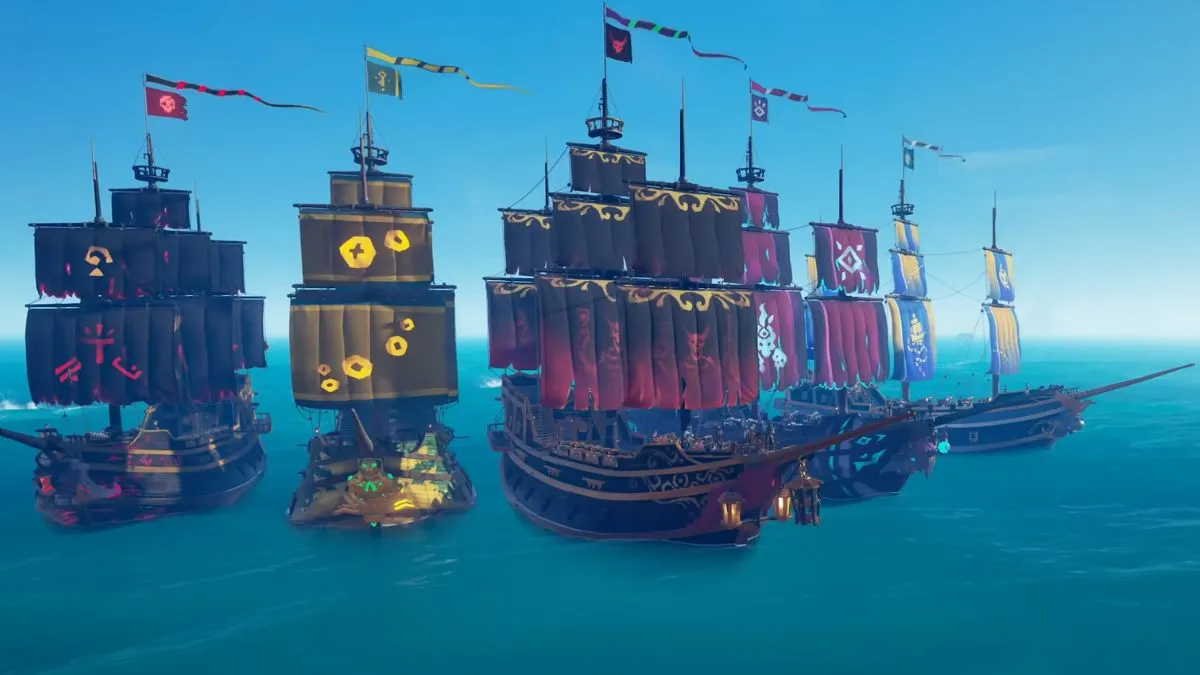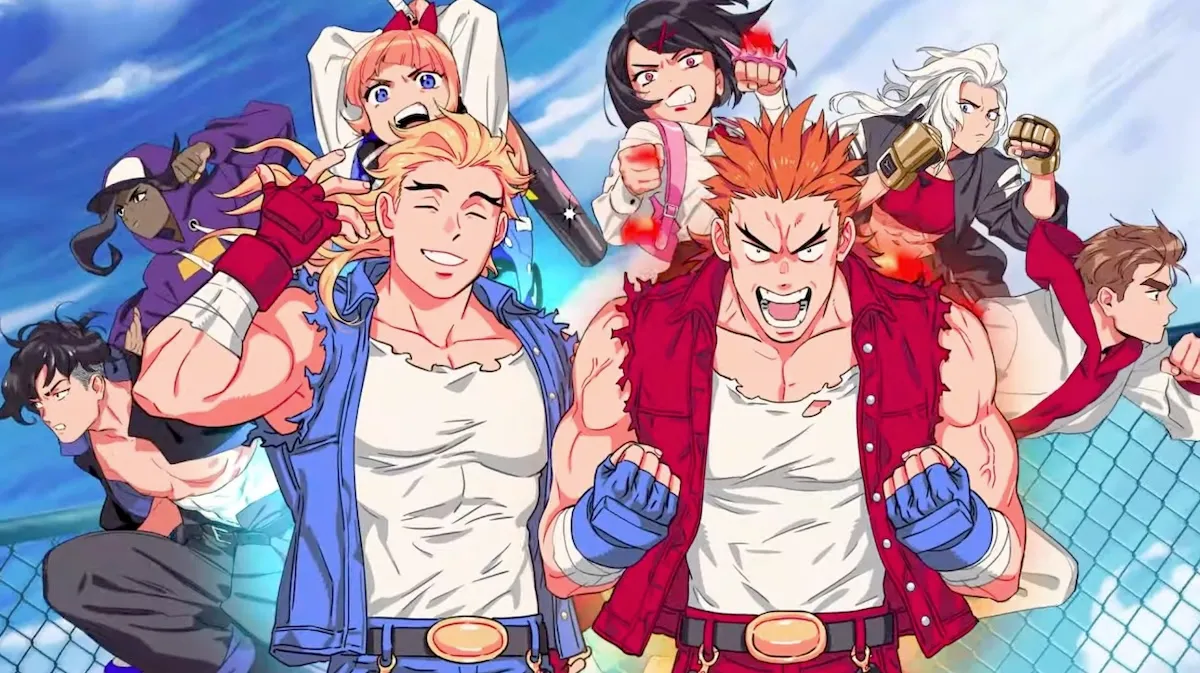From our community blogs
(Note: The author, at time of writing, has not completed Fallout 4, or any mainline Fallout games for that matter, but is aware of the story of New Vegas and Fallout 3. Warnings of spoilers would be much obliged. In turn, the author would like to note that the endings of New Vegas will be spoiled in the article. The author would also like to note that he is a hobbyist, and thus should be considered an authority only to the level of enthusiast. Also, be aware that there will be major spoilers for The Last of Us, including the ending.)
“Eschatology” is a word derived from the greek word eschatos, meaning “last,” and -logy, meaning “the study of.” Basically, it means “the Study of the End of the World.”
Sort of.

Kinda like this, but God’s doing it.
Eschatology is defined by the Oxford Dictionary as “The part of Theology concerned with death, judgement, and the final destiny of soul and humankind.” More generally, it’s devoted to the study of the end times. The “end times,” however, doesn’t really have to do with its modern definition of “the point in time in which we all die.” In its original conception, history in the world was thought of in terms of historical “ages,” with the end times just being the final age. There are obvious examples of this; arguably the most famous is the Rapture in Christianity, with other examples including the Day of Judgement in Islam and End of Days in Judaism. In a way, these are “purifications;” they are the point in time in which all wickedness is washed away, and God’s designs for the world are brought out, bringing Paradise on Earth. In the Book of Revelation, St. John reveals to persecuted Christians visions of the end days; instead of being terrified by the visions of destruction of humanity, they were instead elated. Make no mistake, Eschatology is concerned with the end; it’s Paradise on Earth, sure, but nothing really happens after that. The term “Eschatology” generally refers to the religious context, but there are secular Eschatologies as well; such as the one in Francis Fukuyama’s The End of History and the Last Man. Probably the most famous one, however, is Marx’s theory of class struggle, and how it would result in a perfect, communal society after the victory of the Proletariat.
So far, there are Eschatologies for Christianity, for Judaism, for Islam, for Zoroastrionism, even for Buddhism. Every week you seem to hear about some nut on the radio predicting the Rapture happening tomorrow. But there is at least one really big old world Culture that doesn’t really have an Eschatology to speak of; and that would be China.
China’s history is a bit different. Whereas there are certainly apocalyptic events happening in the histories of Christianity and Judaism, what with the persecution and enslavement, China never really experienced that. Instead, their history is one very long one of primacy and assimilation. China was, for the longest time, one of the most advanced nations on Earth, and enjoyed wealth and technological advancement as a result. In terms of assimilation, whenever in the history of China a foreign power attempted invasion, they were either pushed out, like the Japanese, or they were assimilated, like the Manchus and the Mongols. China’s history was largely rule by Chinese, and Chinese only. Instead of foreign powers trying to take control, it was often Chinese people who did it, doing so by claiming they had the “mandate of Heaven.” China’s history is thus far more “cyclical” than “epochal;” instead of splitting history into chunks with distinctive beginning, middles and ends, China just viewed history as one big cycle, wherein maybe two hundred years from now the current government would fall, there would be another 50 years of civil war, and the cycle would begin anew under a new sub-set of Chinese people.
Whatever the case, this made one very neat wrinkle in Chinese culture; since history is a cycle, there is no end to history. As such, Chinese historical fiction has a very noteable lack of any major “end of the age” type gigs. As Tang poet Du Fu writes in his poem Spring Wish: “The nation is shattered, and yet the mountains remain.” It’s a weirdly optimistic message for a guy who was living through one of the worst combined war-famines in human history; No matter what happens, we’ll still be here. No matter what happens to us, we’ll still come back. While China had its flirts with Western style Eschatology (Mao Zedong is probably the most recent example), its never really caught on to become a permanent, driving force. How hostile is China to Eschatology? All the way back, 1,000 years ago, when China became a Buddhist nation under Wu Zetian (Yes, the Civ V one), she imported the Buddhist “end of days” prediction into the nation. The Buddhist Eschatology prophesied the appearance of Maitreya, who will bring Enlightenment to the World. What did Wu Zetian do with this new “End of the World” prediction?
Why, she gutted it and claimed that she was Maitreya in female form, thus cementing her legitimacy. She turned the scripture of the End of the World into a political tool.

Seriously though, she was ruthless.
So what does this have to do with video games? And especially, what does this have to do with Fallout? What about The Last of Us?
Well, in broad terms, the Western-style religious texts were the precursors to Apocalypse fiction; they served as the foundation for which countless tales of the destruction of humanity would be built upon. The first “real” apocalypse novel, at least in English, was probably Mary Shelley’s The Last Man, wherein the apocalyptic even that ended the world was a super-plague. The main character tries to pull together his family, but in the end, they all die, leaving him the last man on earth. The novel, of course, sparked a strong response; a strongly negative response as it were. Critics savaged it for how depressing it was, for how it portrayed a world where everything just ended. The classic Hero’s Journey requires the Hero to go back to his hometown and teach them what s/he learned; what are you supposed to do when there’s nobody to go back to?
The answer, of course, was simple; don’t educate the people in the story, educate the people in the audience. Suddenly, the author didn’t have to pull punches; s/he could talk directly to the audience. A wealth of Apocalypse stories cropped up (And, in a similar vein, Dystopia and Alternate History fiction), just in time for the new century, when the cycle turned anew, and the ossification of the previous decade gave way to the roiling chaos and confusion of the next. Apocalypse fiction (and Dystopian/AH as well), in many ways, in inherently cathartic; it tells the story of humanity falling apart due to its vices, with the author choosing what that particular “vice” was. And indeed, the atmosphere of the turn of the century was distinctly apocalyptic, with the rapid advancements in technology, natural disasters and the capstone of WW1 and the Great Depression; Suddenly, we were all getting annihilated by poison gas clouds, freak meteorological phenomena, and alien omnicides, each and every one representing that specific asshole in government who was totally going to ruin society.
And then, suddenly, the world turned into a sick parody of itself. European powers have massive colonies? Let’s have a vengeful European power make colonies out of other European powers. And then it became even more of a sick parody. Do you believe that an emphasis on Equality or Freedom constitutes the best way towards a truly democratic society? Doesn’t matter; we know what’s best for you, and we’re going to destroy the entire planet to prove just how much better our system is! Writers went crazy; suddenly, we were getting works like Alas, Babylon, Dr. Strangelove, When the Wind Blows, Terminator.
 Today’s forecast calls for beautiful women, democracy, and horrible irradiated death raining from above.
Today’s forecast calls for beautiful women, democracy, and horrible irradiated death raining from above.
Well, here we get into Fallout. This is the zeitgeist that Fallout is set up to parody; “Our system is so God-damned great, we’re going to hold a nuke over the world just to prove how much better we are!” This is evident in little details all throughout the Fallout universe; you get glimpses of the past, of the expansionist America that frequently mistreated its citizens; but also in how it’s ambiguous whether or not it was America or Red China that dropped the first nuke.
With the nukes, we get to the Fallout universe’s particular Eschatology; oil conflicts resulting in global Thermonuclear war. The sinful world of the past is wiped out in a grand struggle to make way for God’s kingdom. Except, that’s not what happens. Fallout‘s universe, in that perverse, cyclical, Chinese fashion, did not experience an Eschatology at all. People emerged, bleary eyed, from the Vaults and immediately began fighting each other again for the same reasons as before; conquest, glory, dick-measuring. The falling of the nukes was not a revelation; it was just a turning in the cycle.
The fundamental theme of Fallout, rebuilding, plays into this alot. The landscape and politics of the Fallout games are dotted with small farms, settlements, raiders and bandits, a veritable smattering of tribal societies mixed in with larger, more advanced ones. Everything in Fallout is a repetition of the past; in Fallout 4, you get the Minutemen, a repetition of the old American militias; in Fallout: New Vegas, every faction ending is a return to something that happened before the war; be it Rome, or the democratic US, or the technocratic US, or the slightly less technocratic technocratic US; in Fallout 2, you get the San Franciscan Shi Chinese, who have re-established the Qin dynasty in the city. And of course, the most iconic line in Fallout ever is an affirmation that War, War never changes. And so, the great cycle continues turning; civilization spreads across the wasteland; but what is the guarantee that it will remain permanent? We will still be fighting wars. We will still be reading.
 Beauty Shot!
Beauty Shot!
Contrast this with the Last of Us. It’s a frequently ugly, frequently violent game that has Joel old-man strength his way through people who are frequently just doing their job or have gone insane due to the sickness. It’s very apocalyptic, then, much like Fallout. But through it all, there’s beauty. The famous Giraffe scene shows the perseverance of that beauty in the face of the world gone mad; or, for another interpretation, it shows the capability of beauty, as well as cruelty, in nature. Whatever the case, The Last of Us is a very simple story of redemption, seen through the lens of Joel.
Except, not really. Or rather, that story of redemption should not be broadly construed. This is a deeply personal story; it’s the story of Joel’s redemption, not humanity‘s. The ending, remember, had Joel deny humanity the cure to the infection in order to keep his daughter surrogate. This isn’t the story of how humanity rose like a phoenix, this is the story of how humanity became so irrecoverably corrupt that it tore itself to pieces, leaving only the righteous alone. In fact, The Last of Us edges far closer to the traditional model of Eschatology than Fallout ever did. The Jackson settlement, where Joel retires to at the end of the game, is a Paradise on Earth; there’s electricity, plenty of resources, etc. The people there are generally helpful; its run by Joel’s brother, who’s familial piety allows him to bury the memory of the (unpleasant but unelaborated upon) incident in Boston. Hell, they even let Ellie ride the horse. What kind of society lets the children ride the horses? A loving, lawful, perfect society, that’s what.
Meanwhile, the stand-ins for sinful humanity try to break into the settlement to pillage of plunder. Joel’s seen a lot of shit at the end of the story; cannibals, suicide, looting and arbitrary murder, etc; why in God’s name, the game asks, would he try to save these people? Better to just let them fall, and have the righteous prosper. Though the themes of rebuilding are prominently displayed, Joel doesn’t really do much rebuilding; quite frankly, he’s doing the exact opposite of rebuilding. He destroys the last vestiges of the old so that he can join the new.

And the sky is filled with light, can you see it?
And therein lies the difference between Fallout and the Last of Us; between Eschatology and the cycles of history. Fallout is an ugly, brutal, oftentimes vulgar game about unpleasant caricatures doing unpleasant things. It is a game about the unchanging nature of man and how that nature frequently drives us towards conflict even after that conflict drove us nearly to extinction. It is also, perversely, one of the most hopeful games in existence; only two hundred years after the nukes erase the surface, the people of the world have gotten back to pretty much where they were before; warring, yes, but also building. You see the flourishing of ancient empires, golden ages, regrown on American soil; just like that, the Qin and the Romans have risen again, the middle kingdoms, the great influences on their respective halves of the continent, reborn in an incredibly short time. Fallout shows the permanence of humanity, first and foremost, and how it obstinately remains unchanged even after the literal apocalypse.
The Last of Us, conversely, is a brutal game, sure, but it is also frequently beautiful. It shows how nature makes beautiful the ruins of humanity; it shows the reclamation of cities like Boston by the elements, giving hope to those who see it, like Joel and Ellie at Salt Lake City. It is also one of the most pessimistic games out there; it posits that humanity is corrupt, that humanity is evil, that sometimes, a large segment of humanity just needs to go fuck itself for the chosen ones to propagate. And that’s the difference between Fallout and the Last of Us;The Last of Us posits that most of humanity is evil; Fallout posits that most of humanity is human.
Perhaps that’s just my view. It’s entirely valid to say that The Last of Us has the more positive view; that Fallout‘s message of “humanity will always strive to conquer” is almost defeatist, and that the Last of Us shows that humanity, even if it’s just a small part of it, can change. But whether or not you take this view, or my view, or something in between, this debate over history and Eschatology, whether there is progress or cycles, shapes how we view the future, how we prepare for it, how we even define it. This debate, it’s eternal in many ways; it’s outlived the Romans and the Qin, the plague and Napoleon, past the age of feudal lords, the age of colonies, the age of kings, all the way into this, our age. And honestly? I’m willing to bet this debate will keep going on, even after I die. It’s as the excellent Miracle of Sound song says, I guess some things never change.
 Except the ubiquity of headphone jacks, apparently.
Except the ubiquity of headphone jacks, apparently.




